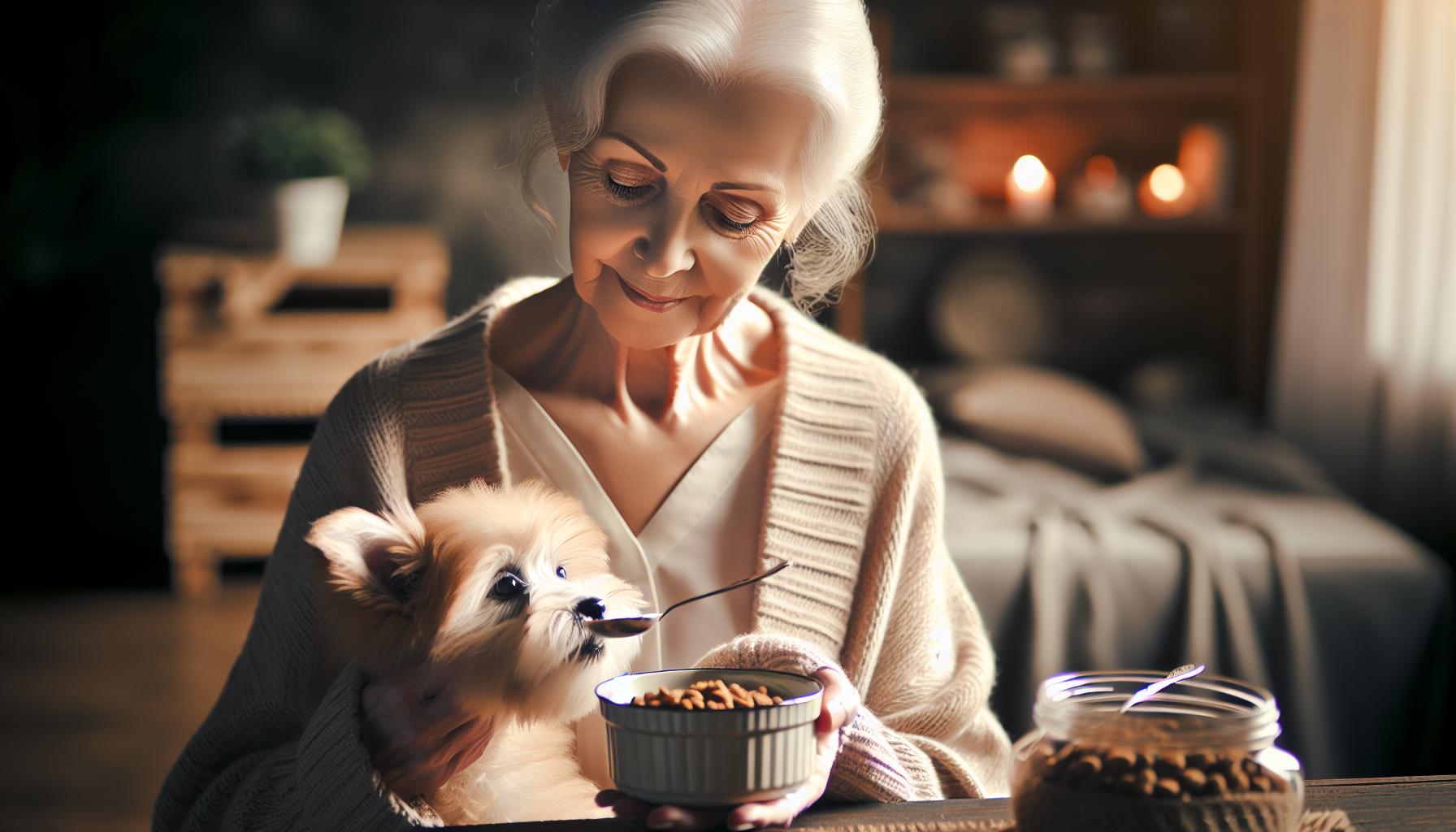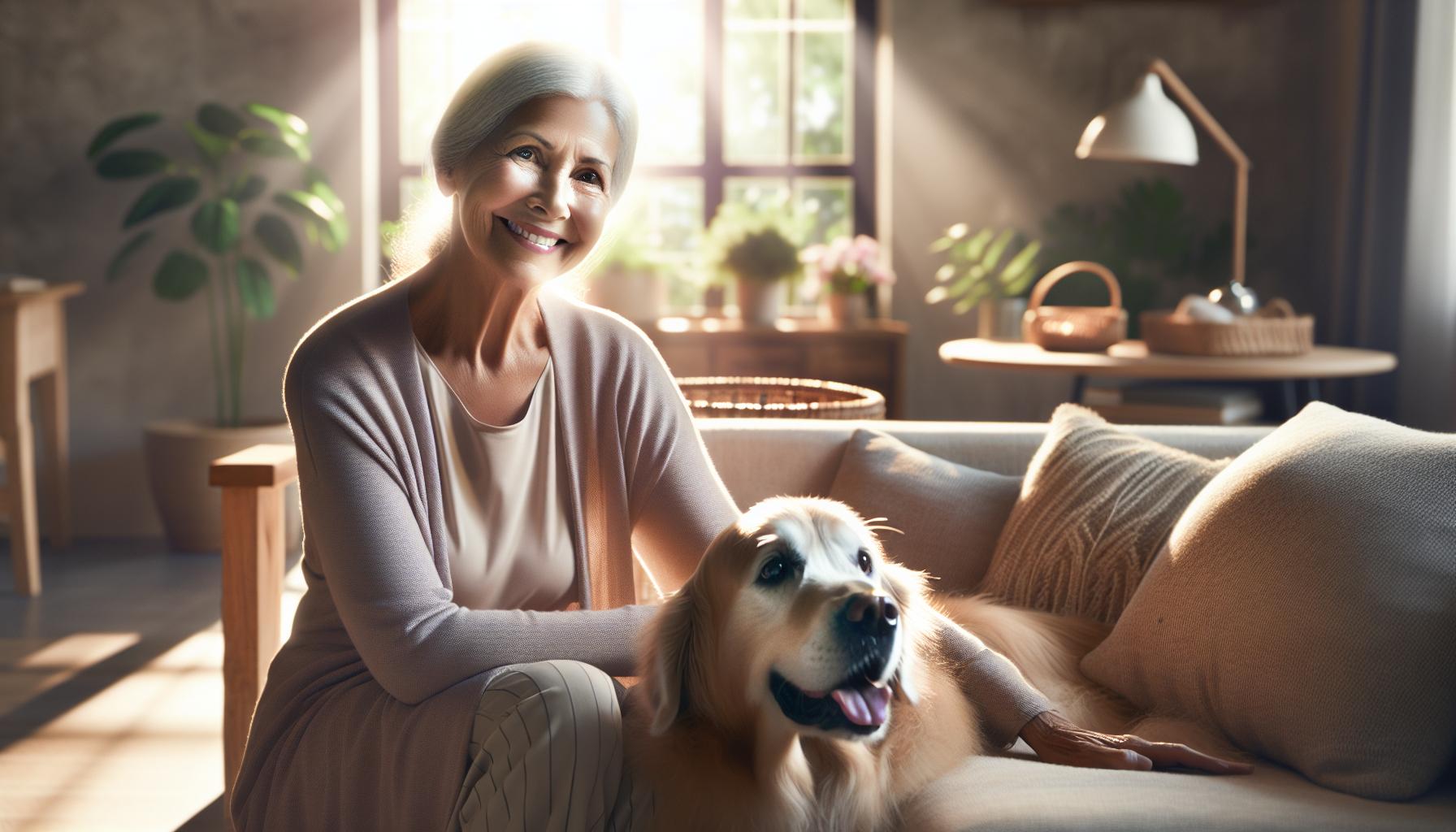As pets age, they often need a little extra TLC, and that’s where elder pet care comes in. Imagine your furry friend, once a sprightly pup or kitten, now sporting a few gray hairs and a penchant for napping that rivals a sloth. While they might not be as spry as they used to be, they still bring joy and love into their owners’ lives.
Understanding Elder Pet Care
Elder pet care focuses on meeting the unique needs of aging pets. These animals require special attention to ensure they live comfortably and happily.
Importance of Specialized Care
Specialized care plays a crucial role in enhancing the quality of life for older pets. Regular veterinary check-ups help detect health problems early. Customized nutrition supports their specific dietary needs. Pain management strategies maintain their comfort, and providing a safe and accessible living environment promotes mobility. Attentiveness to mental stimulation through interactive toys and socialization contributes positively to their well-being. Owners should prioritize these aspects to ensure their pets remain active and engaged.
Common Health Issues in Older Pets
Common health issues frequently affect older pets. Arthritis leads to joint pain and mobility difficulties. Kidney disease impacts overall health and requires special dietary management. Dental disease can affect eating habits and overall health, so regular teeth cleaning is essential. Hearing and vision loss are typical but can often be mitigated with adjustments at home. Regularly monitoring these conditions can significantly enhance the elderly pet’s quality of life. Proactive health management helps owners provide adequate care tailored to their pets’ needs.
Best Practices for Elder Pet Care

Elder pet care demands attention to specific needs as pets age. Implementing best practices ensures comfort and quality of life.
Diet and Nutrition
Proper diet and nutrition play crucial roles in elder pet care. Older pets often require specialized diets rich in nutrients to support their health. Ingredients like high-quality protein, omega fatty acids, and antioxidants promote vitality. Adjusting portion sizes according to weight and health conditions helps manage obesity and related issues. Always consult with a veterinarian to determine appropriate dietary changes tailored to the pet’s unique needs. Freshwater should remain available at all times, ensuring hydration and well-being.
Regular Veterinary Check-ups
Regular veterinary check-ups are essential for monitoring an aging pet’s health. Scheduling visits every six months allows early detection of health issues.
During these appointments, veterinarians can assess vital signs and provide vaccinations when necessary. Blood tests and other diagnostics help identify conditions like kidney disease or arthritis early. Keeping up with dental health is another critical aspect, preventing pain and infections. Maintaining open communication with the veterinarian about any behavioral or physical changes will guide tailored care plans.
Creating a Comfortable Environment

Creating a comfortable environment is essential for elder pets, ensuring they feel safe and at ease in their surroundings.
Safe Living Spaces
Safety should always be a priority for older pets. Clear pathways of obstacles prevent slips and falls, which can be particularly harmful for aging animals. Non-slip mats can help maintain stability on slippery floors. Keeping frequently accessed areas well-lit supports their navigation, especially if their eyesight is deteriorating. Consider providing a designated resting area with a soft bed, reducing muscle strain during sleep. Indoor temperature control also contributes to comfort; maintaining a moderate environment can ease discomfort in older pets.
Adaptations for Mobility
Mobility aids significantly enhance the quality of life for senior pets. Elevated food and water bowls can reduce strain during meals, promoting better posture. Pet ramps or stairs assist with accessing furniture or vehicles without excessive jumping. Choose harnesses or slings to help support pets with weak limbs during walks. Regular exercise, even if gentle, preserves muscle tone and joint mobility. Shallow litter boxes can aid cats that struggle to jump, ensuring easier access during bathroom breaks. Overall, these adaptations create a more accessible and supportive living arrangement for elder pets.
Emotional and Psychological Needs
Understanding the emotional and psychological needs of elder pets is vital for their overall well-being. Meeting these needs enhances their quality of life and strengthens the bond between pet and owner.
Social Interaction
Engaging in social interaction supports the emotional health of older pets. Regular visitations with family members and friends can alleviate feelings of loneliness. Encourage interaction with other pets as well; companionship promotes happiness and reduces stress. Daily affection and petting provide comfort, reinforcing a sense of security. Even brief sessions of playtime can stimulate positive emotions, making elder pets feel valued and loved.
Mental Stimulation Activities
Mental stimulation activities play a crucial role in keeping elder pets sharp. Interactive toys and puzzle feeders provide challenges that engage their intellect. Short training sessions can also keep their minds active, reinforcing basic commands. Introducing new scents or toys stimulates curiosity, which helps prevent boredom. Spending time on simple activities, like hide-and-seek with favorite toys, fosters a sense of adventure and discovery. Offering varied mental exercises ensures elder pets remain engaged and content.
Conclusion
Caring for elder pets is a rewarding journey that requires understanding and compassion. By prioritizing their unique needs owners can ensure their beloved companions enjoy a fulfilling life. Regular veterinary visits tailored nutrition and a safe living environment are essential elements in this process.
Moreover addressing emotional and psychological needs plays a crucial role in maintaining their happiness. Engaging in gentle activities and fostering social interactions can significantly enhance their quality of life. With the right approach elder pets can continue to bring joy and companionship to their families for years to come.
